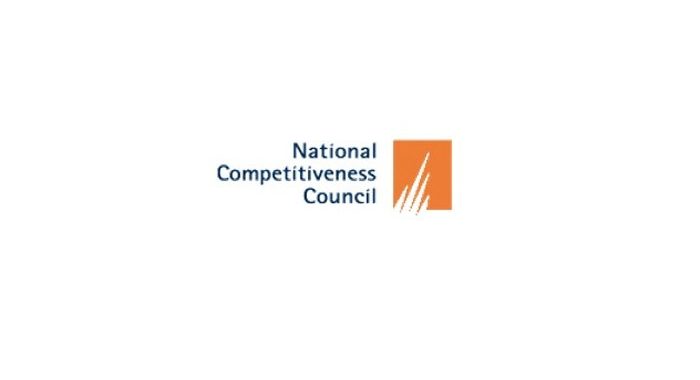- The trends across a number of competitiveness indicators suggest that Ireland is in a competitive position relative to where it was 10 years ago.
- However, the Irish economy continues to face a number of sustainability threats.
- As a small open economy, Ireland is particularly exposed to the actions of other countries. Factors outside of our control (Brexit, US trade and taxation policy, Chinese economic performance) will expose any weakness in the Irish economy.
- Domestically, the economy is concentrated. It remains dependent on a small number of firms, in a small number of sectors, leaving the economy vulnerable to shocks.
- The Council also notes the risk of overheating which has also been highlighted by the Irish Fiscal Advisory Council, but points to the possibility that this could change rapidly in the face of an international downturn.
- High and rising business costs (in credit, business services, commercial rents and insurance), environmental sustainability, and increasing skills mismatches will impact on Ireland’s future competitiveness.
- Sustainability issues also arise in relation to Ireland’s commitments on climate change. The achievement of the targets presents an enormous challenge which required a step-change in behaviour and policy formation.
The Chairman of the National Competitiveness Council (NCC), Professor Peter Clinch, today (9 July 2019) launched ‘Ireland’s Competitiveness Scorecard 2019’ – a report that builds on the evidence already presented in the ‘Cost of Doing Business in Ireland 2019’ report and the ‘Productivity Statement 2018’. The Scorecard adds a number of non-cost competitiveness indicators that are assessed by the Council to inform the Council’s views on the overall competitiveness of the Irish economy and the key issues the Council needs to highlight, and raise with Government, so as to ensure that Ireland’s competitiveness position is protected as best as possible.
The report provides the Council’s overall assessment of the competitiveness of the Irish economy and flags a number of areas that may be negatively impacting on competitiveness. The Council’s annual publication, the Competitiveness Challenge 2019 (due in December), will build on the evidence presented here and make recommendations to Government on the best ways to improve competitiveness.
In what is his last report as Chairman, Professor Clinch said ‘In 2014, when I joined the National Competitiveness Council, Ireland was emerging from what was viewed as the worst economic crisis in the history of the State. Today, Ireland is ranked by the IMD as the 7th most competitive country in the world, and the second most competitive country in the euro area. This is a significant achievement.’
‘However, in recent years, the cost-base has risen and the economy has become more concentrated in certain areas, leaving Ireland exposed to the performance of a small number of firms, trading in a relatively narrow range of products and services, and operating in a small number of sectors. Moreover, with public debt levels that are the highest in the EU, Ireland is vulnerable in the face of any future crisis.’
‘These threats to the sustainability of the economy sit alongside other sustainability issues. Ireland is on course to fail to meet its 2020 EU commitments for reductions in greenhouse gas emissions. These continue to rise as they decrease across the EU. The Council welcomes the Government’s Climate Action Plan and notes that significant behavioural change will be required for Ireland to come close to meeting its 2030 targets.’
ENDS
National Competitiveness Council
The National Competitiveness Council (NCC) reports to the Taoiseach and the Government, through the Minister for Business, Enterprise and Innovation on key competitiveness issues facing the Irish economy and offers recommendations on policy actions required to enhance Ireland’s competitive position.
In accordance with the European Council recommendation of September 2016 on the establishment of National Productivity Boards by euro area countries, in March 2018, the Government mandated the National Competitiveness Council as the body responsible for analysing developments and policies in the field of productivity and competitiveness in Ireland.
The main findings of the report are:
- Ireland continues to perform well in the three most influential competitiveness indicators. Ireland is ranked 7th in the IMD rankings and ranked 23rd in both the WEF and World Bank rankings.
- Ireland’s Harmonised Competitiveness Indicator (HCI) also suggests that the economy made large competitiveness gains from 2010 onwards.
- There are a number of observations that raise the question of the sustainability of Ireland’s competitive position.
- There are substantial international risks, including Brexit and potential changes in US international trade policy, which are compounded by domestic issues, including the concentration of the Irish economy and the risk of the economy overheating.
- Ireland also remains a high cost economy. Higher costs, in general, are less of a concern, should productivity levels grow at a faster pace. However, the majority of firms in Ireland demonstrate stagnant or declining growth in productivity.
‘Ireland’s Competitiveness Scorecard 2019’ is available at http://www.competitiveness.ie/











